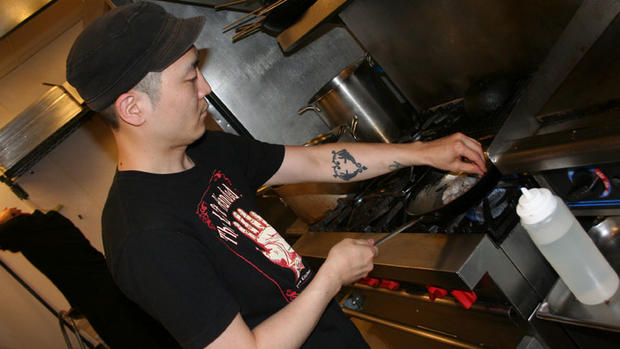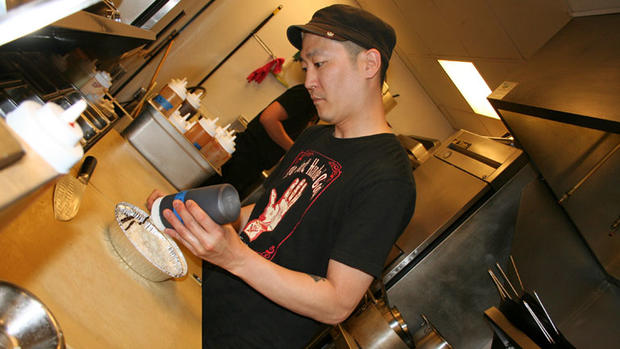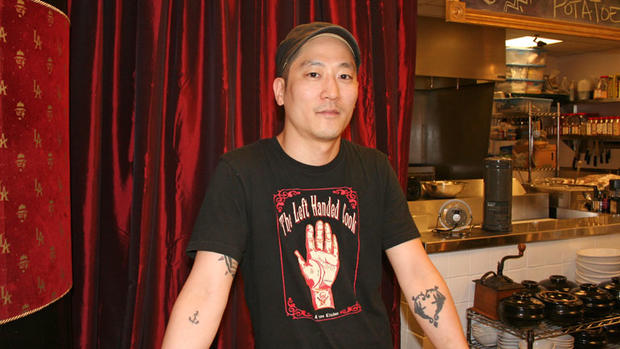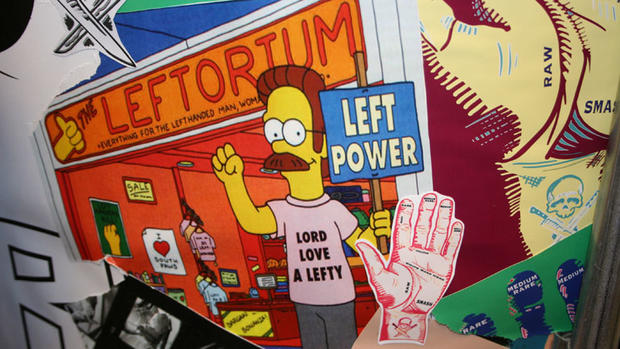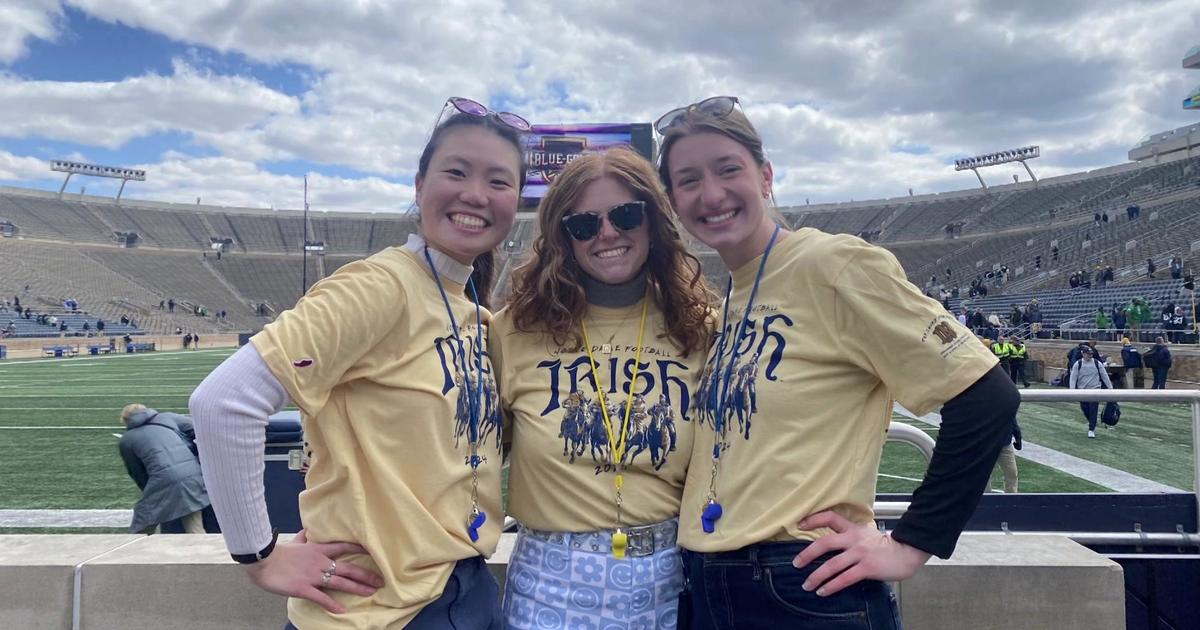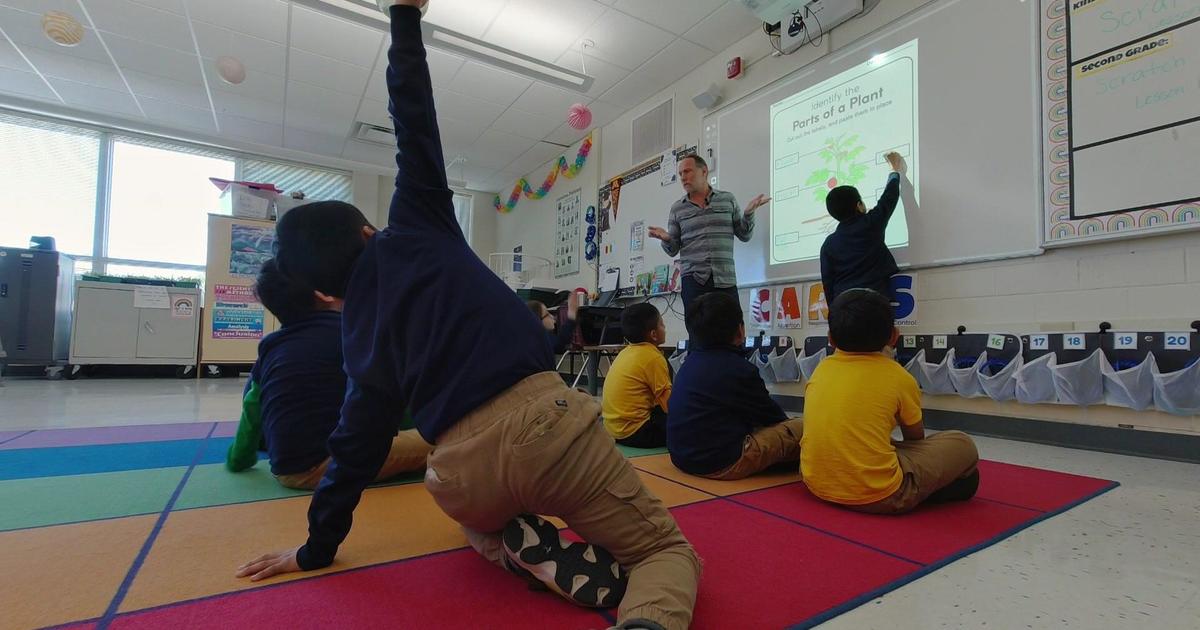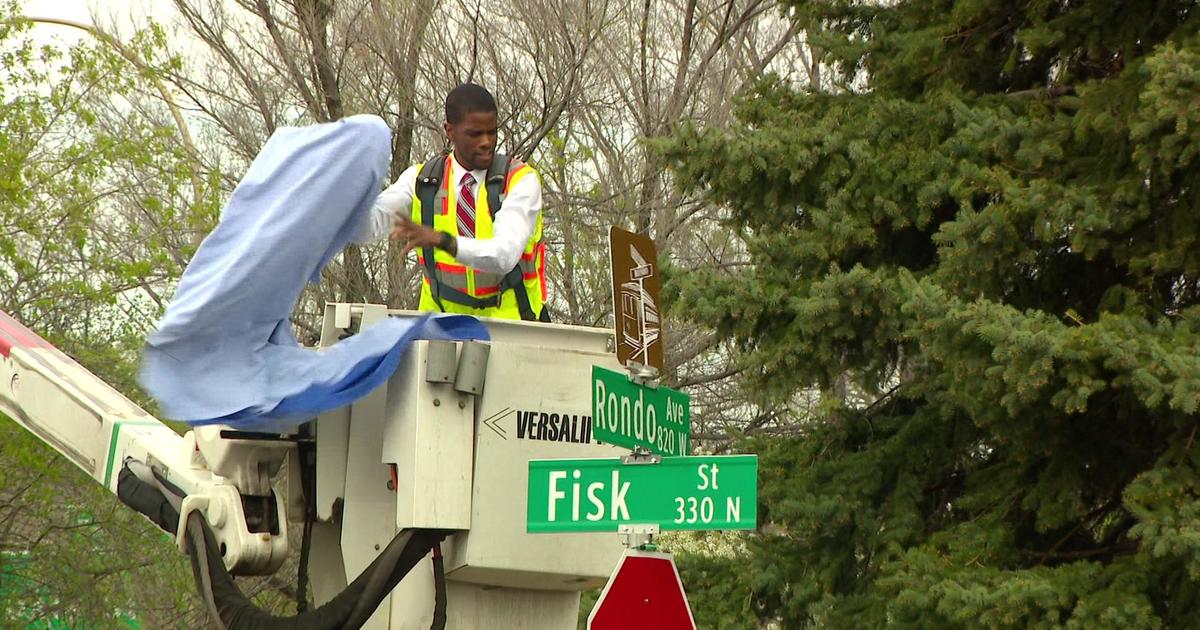Curiocity: A Chef's Profile Of The Left-Handed Cook, Thomas Kim
The Twin Cities are blessed when it comes to talent in the kitchen. The culinary minds at the helm of our favorite restaurants receive critical acclaim and top honors from food enthusiasts and reviewers, alike. But who are the people behind the chef's coat? Our Chef's Profile aims to find out.
Thomas Kim began dabbling in the kitchen at a very young age, after his exasperated mother told her picky eater, if he didn't like it, then he could be the cook. Who knew that act of frustration would pave the way for a career in culinary creativity.
The spark was ignited early on -- quite literally at times (young Kim managed to start three separate kitchen fires, but more about that in a bit). Though he always knew his way around a kitchen, it wasn't until a freak accident that he even considered cooking to be a lifelong endeavor.
Having fled one occupation for some soul searching, Kim was managing a college town sushi restaurant while crashing at his brother's house. After one cook unfortunately took a stumble into a deep fryer, Kim found himself donning an apron and moving from the front of the house to the back.
After months undergoing Japanese apprenticeship training, Kim learned the ins and outs of cooking – from the lessons learned from a restaurant's trash can to the detailed approach of shopping for fish. Roughly a decade later, Kim's been mentored by some of the best chefs in the nation, worked in prestigious Los Angeles kitchens and served meals to a celebrity or two.
It wasn't until he and his love, Kat Melgaard, were looking for a change that Kim even stepped foot in the Midwest. On a fluke, Melgaard, a native of North Dakota, decided to spend some vacation days visiting friends in Minnesota when it hit her, "This is where we should live."
The two moved to Minneapolis in February 2012 and just a few months later, The Left-Handed Cook was born. In its short, yet impactful, life inside the Midtown Global Market, Kim has blown away restaurant-goers and critics alike with his second-generation Asian fusion cuisine. But it's not just the food that impresses – this talented chef is bringing a new level of excitement and creativity to a town that's anxious to see what he does next.
Here's more about The Left-Handed Cook.
--------
How old were you when you began cooking?
Actually, my relationship with food goes back a long ways. I was always interested in it. I was a very finicking eater as a child so a lot of times my mom would just get fed up and say, "Make your own food." So I think I started cooking probably around 6 or 7, I mean, obviously not really cooking but helping out. I think it was just watching PBS that really got me started – watching Julia Childs, the Frugal Gourmet, Yan Can Cook, a lot of those things really got me going. It made it look a lot cooler than I think it really is. (Laughs) Yeah, I started really young and then it didn't strike me as a career move until much later in life.
So you initially went to school to go into film and television. What changed your career path?
Yeah, I started working in Hollywood for a few years and then, it just was not made for me. I just wasn't happy. I couldn't stand working 18-hour days, waking up at 4:30 and getting paid peanuts. So I traded that for 15-hour days and getting paid peanuts. (Laughs) Not really much of a difference. But I felt like I wasn't really contributing to a final end product. I needed a change of pace. I was living in Los Angeles and my brother had moved to San Francisco and he was just saying, "Hey, I have an extra bedroom if you just want to come up and clear your head." So the first job I was able to find there was at a sushi restaurant, as a front of the house manager. It was one of those college town sake bomb kind of places but it was a good place to learn how everything worked – to be able to sell people on items and do the back work of really becoming a person in the restaurant field.
And from there, where did you work? What molded your culinary style?
I wasn't actually working in the back of the house. I stumbled into that because one of the guys that was working there, he tripped and his arm went into the deep fryer. But yeah, he got injured at work and couldn't work for like six months. So the owner was like, "I just need you to throw on an apron and whatever you can do, I'm not expecting a lot." Luckily, it just caught on. I caught on pretty quickly and I really enjoyed doing that more than anything else. So he was like, "You know what, you're a good fit here. Just stay behind the bar." So I learned sushi that way and I had an opportunity to meet other sushi chefs and they kind of introduced me to my mentor (Jin Suzuki from Hachi ju Hachi restaurant in Saratoga, CA) who took me under his wing and put me through the kind of traditional Japanese apprenticeship. I started off as a dishwasher and a janitor. Then I'd go with him to go shop for fish and vegetables and he'd show me how to pick things and then I'd go back and wash all the vegetables. I don't think I picked up a knife I think for six months. He wouldn't let me touch a knife. I didn't get to cut anything. But he walked me through the whole process and later on he explained it to me, "You were a dishwasher because I wanted you to see what food was working, what wasn't and that's what you'll notice from the trash." Everything had a reasoning and method behind it. I was very fortunate to be able to experience all of that.
What brought you back to Los Angeles?
From there, I actually got offered a position in Los Angeles so I came back down and then I started working at the Biltmore Hotel, which is one of the historic hotels in downtown Los Angeles. That was my first executive chef position. I kind of moved around Los Angeles for a while and then I landed at Roy's Restaurant, which is a Hawaiian fusion place owned by Roy Yamaguchi, a James Beard Award-winning chef. Luckily, he really liked what I had done before and really took me under his wing. At that time, he was running a restaurant empire of like 33 restaurants. So from him and his culinary team, I had the opportunity to learn really large-scale things, learn the essentials – inventory and doing things on a corporate scale, thinking much bigger than a small restaurant. I had the opportunity to work with them for three years and then I just got to that point where I just wanted to branch out on my own and do something different. So Kat and I ended up opening a burger spot in the back of a liquor store. It was a little, tiny 200-square-foot kitchen. We did that for a year and then sold that and moved out here so now we're in Minneapolis doing our thing at The Left-Handed Cook.
So what kind of food did you grow up with? What did your family cook?
My parents grew up in Korea and they grew up in a time when, unfortunately, it was really, really lean. And even more so because my dad and my mom's family, they are farmers and kind of village people. They weren't rich by any means so they learned how to stretch every ingredient. So that's the style of cooking that my mom still does. Even in Korea, it would be considered peasant food. She does a lot of pickling and not a lot of meats, a lot of fish, seafood and vegetables. So that was kind of the style that I grew up eating and it just translated into, I just really like comfort food so it was an easy transition into American comfort food. It made sense. Everything was a lot of one-pot. It was an easy flavor transition for me.
How did that food inspire the food on your menu today?
I think it was because my mom definitely, in part because she got fed up having to make custom meals for me but she encouraged being original and inventive. So she allowed me to do whatever I wanted in the kitchen, even if it actually made no sense. I think that allowed me to kind of free up my notion of what food was – I wasn't married to "Oh, this is Korean, this is Mexican, this is American." We just made whatever was available. It wouldn't be uncommon for us to put Korean BBQ beef into a tortilla and eat it that way. It was a lot of those things. I think my food memories are luckily, very vast. When I was a kid, we moved around a lot. So I lived in south central for a while, we lived in the valley, where there was a large Hispanic population. My aunt at one time owned a Mexican restaurant and she would babysit us so my brother and I would sit at a Mexican restaurant all day. So we got turned on to the Mexican street tacos early on. We had a wide variety of influences and I think that really comes into play here (at Left-Handed Cook). There's no-holds-barred, pretty much whatever we want to do, we're just going to go for it.
I read that you burned down three kitchens growing up. Was this the early stages of your culinary experiments?
I did. It kind of comes back to the whole thing of my mom saying, "If you're hungry, you make your own food." I think that in her mind, she wasn't thinking I'd do it all the time but I'd come home from school and yeah, I was fairly young. The first kitchen I started on fire was when I was in first grade. I was actually making potstickers and I like the fried style so I was frying them and not realizing that the oil would catch on fire. So it ended up catching on fire and I didn't know how to put it out. I freaked out and I just ran away. So yeah, the fire ended up burning all the cabinets and it was a big mess. So that was the first one. I think the second fire I started I was maybe in seventh grade. I was doing some kind of roast and a cake at the same time. Having absolutely no concept of how long I needed cook it for, I just left it in there and started playing video games or something. I completely lost track of time and it ended up catching on fire. This one wasn't as bad but the oven ended up going. We lost the oven. And this was at another house. We had moved. I ended up burning a brand new kitchen. The third one, I think I was in high school. That one was actually bookended by also frying potstickers and starting a fire again. Although this time I knew how to put it out. So there wasn't too much damage. That has been my illustrious career of burning down kitchens. Hopefully I got all of that out of my system and at this point, no commercial kitchens will get burned.
So from Los Angeles and San Francisco, what brought you to Minnesota?
I think that people are always interested in the motivation behind moving from somewhere to somewhere else, especially for some reason, Minnesotans really question that motivation. I think for Kat and I, we just wanted a change of pace. We were looking for different opportunities. I had lived in California all my life. Kat had lived there for six years but she's originally from North Dakota. We were exploring different cities to move to – Seattle, New York, Florida was in there, I think Tennessee was in there. Kat had some vacation time and went to visit some friends that still live in Minnesota and when she came back she said, "I think we should go out there. Let's go check it out and if you like it, then we'll move." I ended up coming out here for a few days and I really enjoyed the scene that's here. There's four seasons, which is one thing that I've never experienced before, it has a great beer scene, it has a really vibrant restaurant culture, really great music and art – and these are all things that I love. To be surrounded and immersed in that was a really cool thing. I think people are a little more supportive and embrace people doing their own thing.
In Los Angeles, the great thing is that a lot of opportunities are afforded to you and when you do something right, financially, you really reap the rewards but for the most part, you're just a face in the crowd out there. I think over here, it really feels more like a community. That's what we were really looking for – a place where we could feel like we are making somewhat of a difference and bringing something that no one else is doing. Obviously my brand of doing some Korean-fusion, Asian thing is a dime a dozen in L.A. I think that over here, they're starting to ride that wave and a lot of people are starting to branch out into more international cuisines. We're fortunate enough to be able to come in a state where we are able to make an impression. We're definitely happy to be able to contribute to the scene.
When you were looking at opening your own place, what made you decide on the Midtown Global Market?
Ironically, we came here to eat. This wasn't a location that we were originally looking at. We were looking at a stand-alone We came here to eat and we actually came to eat at La Sirena Gorda, which was the restaurant in this place before we were and unfortunately, it had closed down. We ended up not getting our fish tacos but we did get a little bit of a lead on a restaurant space. So we kind of researched it a little bit and found out that (Neighborhood Development Center) one of the partners in the Midtown Global Market, they're basically an incubator site that really caters to helping small businesses open and they kind of hit all the right notes that we were looking for. We were looking for a non-conventional way of opening a restaurant. We didn't want to go through the typical bank process and weren't savvy enough to do a Kickstarter program. It really worked out for us to land in this space. We had a really good initial conversation with the management here at the Midtown Global Market and they were super supportive. They were like, "We definitely don't have a second generation style Asian restaurant." … So we kind of hit the ground running. We moved here in February, signed the contract in March and opened in May. It was a really quick process. Again, that was something that I don't think would've been possible anywhere else. Minnesota, particularly Minneapolis, really affords small business owners the opportunity to kind of start off easily. So that was something that really appealed to us as well.
How did you land on The Left-Handed Cook and the overall theme of the restaurant?
I think the theme is more, I couldn't possibly put a finger on what it was that we decided on. It was just a healthy dose of both of our personalities – Kat's and mine. Kat's a very visual person and she has a real eye for design so I let her kind of work her magic. For me, there were some specifics that I wanted to see but Kat really brought them all together. She made this space into a cohesive element. I think my direction for her was, "I want a place that was punk rock and didn't identify by a cuisine." So I didn't want somebody to walk by and see an Asian mural and think, "Oh, it's an Asian place." We were kind of all over the board with that. We wanted a little bit of a homage to Los Angeles so we kind of tried to incorporate some of that.
And The Left Handed Cook, that was a nickname Kat gave you?
It is. We were like, "We should probably think of a much cooler story behind The Left-Handed Cook." Unfortunately, it's just that I'm left-handed. She thought it was weird. I was cooking for her on one of our early dates and she thought it was weird that I was doing things from the opposite side of what she was used to seeing. Sautéing with my left hand, I was eating and doing these things with my left hand and it kind of threw her off because we were matching – I was across the table from her – and then it clicked to her that, ok, this is a little bit different. When we were looking for a name, it just popped up and stuck.
Coming from L.A. and San Francisco, what were your perceptions of the Twin Cities culinary scene?
To be honest, I've only been to the coasts – up and down the west coast, I've been in New York, lived in Hawaii for a little while. I basically had zero notion of what was happening in the Midwest. If anything, I had the wrong or misconceptions about the Midwest from friends that had left. A lot of my friends in Los Angeles were from Wisconsin or Minnesota, so they would tell me what they remembered as kids. But obviously, Minnesota now is nothing like Minnesota then. They were saying like, "Oh yeah, people leave their keys in their cars and everyone's super friendly, there's like no crime. Everything is one pot meals, really meat and potato heavy, there's no seafood." So I had this like, bleak picture in my head but when we got here, obviously the restaurant scene is so diverse and awesome. I honestly didn't think there were as many Asians as there are here – the Korean-adoptee population, the Hmong population. So I was pleasantly surprised. Even places like Sea Change, Fuji Ya and all of these places that are bringing in fresh seafood that are good quality. So all the things that I thought before were quickly proven wrong. And the one-pot thing and the hotdish, as quirky as they were I had an opportunity to try a variety of them from home cooks to chefs and I like them. I feel like comfort food couldn't get more quirky but satisfying. The food scene just surprised me overall. It wasn't at all like I thought it would be.
What was it like to come into a new city and somewhat immediately receive great praise for the food you're putting out?
You know, again, I think it comes back to the willingness of everyone to embrace something new and original here. They don't shun you because they don't understand it. I definitely feel blessed to have been embraced the way we have. Everybody's been super kind with their words for us and what we do here. I think that we came at the right time. We happened to have the luck that we were cooking things that certain people were looking for. And so I think everything just worked out and it was a lot of luck chance and good will on other people's part. If anything, we're more grateful than skilled. We're definitely happy about that.
Check back next week for Part 2 of our chef chat with Thomas Kim. For more information about The Left-Handed Cook, click here.
